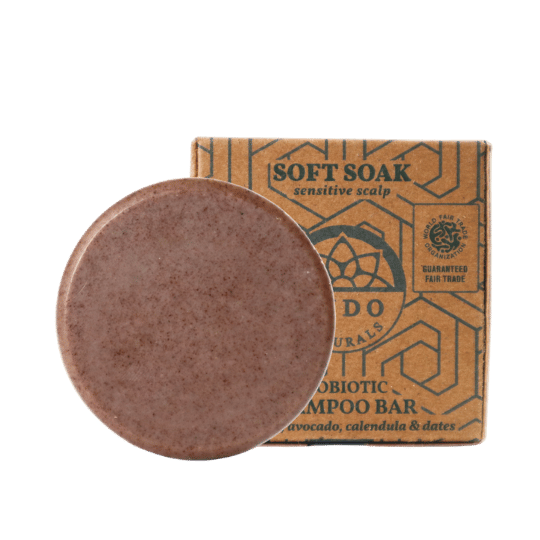What our WFTO Fair Trade Guaranteed Membership Means
- Indo Naturals

- Jan 31, 2023
- 5 min read
WFTO is a worldwide organization with over 401 members from 76 countries and on all continents. The organization runs on a democracy that represents a wide array of cultures, religions, races, social statuses, and opinions making it possibly one of the world's most diverse organizations. What brings us together is the struggle for a fair world where everyone has an opportunity and a voice to stand up for their rights.
In end of 2022, after a long application process of almost 2 years, we were approved as a guaranteed fair trade member and become Norway's first.
As a WFTO member, one of the main focuses is to strengthen marginalized groups through fair trade production. In addition to the human and societal factors, WFTO fair trade standards include strict environmental practices. The fundament of WFTO lies in its 10 fair trade principles which all member organizations must adhere to in their operations and continuously monitor to assure compliance with. For all WFTO-guaranteed members, reporting, monitoring, improvement planning, and auditing are done on a continuous basis. Read about our on-the-ground work to assure fair trade here. The guarantee label means that WFTO has assured that the organization complies with the 10 principles in a satisfactory way. Let's take a closer look at the 10 principles.

10 Principles of WFTO
Principle 1: Opportunities for Disadvantaged Producers
An essential part of the organization's goals is the alleviation of poverty through trade. Regardless of whether they are independent family firms, associations, or co-operatives, the organization assists neglected small producers. It aims to provide individuals with the resources they need to transition from poverty and inconsistent income to economic independence and ownership.
|
Principle 2: Transparency and Accountability
In terms of management and business dealings, the organization is open. All of its stakeholders may count on it, and it respects the sensitivity and secrecy of any given commercial information. In order to include employees, members, and producers in its decision-making processes, the organization finds appropriate, participatory means to do so. All of its trading partners are given access to pertinent information. All elements in the supply chain can easily and effectively communicate with one another. Fair trade practices are a core part of the organization and the top management has the responsibility to assure compliance.
Principle 3: Fair Trading Practices
In order to expand fair trade, the organization keeps long-lasting connections based on respect, solidarity, and trust. It has efficient channels of communication with its trading partners. The parties in a trading connection strive to increase both the amount of trade and the quality and diversity of items offered in order to increase the partnership's potential for Fair Commerce and the producers' earnings. Producers are paid on time and pre-payments are done if needed. The trade is done in an organized and documented manner.
Principle 4: Fair Payment
Taking into account the idea of equal pay for equal labor performed by men and women, a fair payment, one which is negotiated and agreed upon by all the parties via ongoing dialogue and involvement, gives fair compensation to the producers, and can also be supported by the market. The goal is fair payment. Fair Wages, Fair Prices, and Local Living Wages are the components of Fair Payment.
Fair Prices
Between the buyer and the seller, a Fair Price is freely negotiated and is established on a transparent price setting. Both a fair wage and a fair profit are part of it. Paying everyone in the supply chain a fair price ensures that they all receive a fair share.
Fair Wages
Assuming the payment of at least a Local Living Compensation, a Fair Wage is an equitable, freely negotiated, and mutually agreed-upon wage.
Local Living Wage
With a Local Living Wage, an employee in a given area shall be able to provide for themselves and their families on the money they earn within reasonable working hours. A reasonable level of living should include things like food, water, housing, education, health care, transportation, clothing, and other necessities like money set aside for unforeseen circumstances.
Principle 5: No Child Labor and No Forced Labor
Fair trade organizations ensure that no forced labor was used in the production and that the producer complies with local and national laws regarding the employment of children as well as the UN Convention on the Rights of the Child. Children's well-being, security, educational needs, and need for play are not negatively impacted by any involvement of children in the creation of Fair Trade goods (including learning a traditional craft or art).
Principle 6: No Discrimination, Gender Equity and Freedom of Association
When it comes to employment, pay, training opportunities, promotion, termination, and retirement, the company does not discriminate on the basis of national origin, age, caste, religion, sexual orientation, disability, gender, union membership, or political affiliation.
The company has a well-defined policy and action plan to promote gender equality, which involves making sure that both men and women have equal access to the resources they need to be productive and the authority to affect the larger institutional, policy, and regulatory environments that have an impact on their lives and livelihoods. Women who work for the company are paid equally for the same amount of effort.
The organization is dedicated to ensuring that women obtain all of the statutory employment benefits and acknowledges that women have the same employment rights as men. The organization considers the unique health and safety requirements of expectant moms and mothers who are nursing.
The company upholds each employee's ability to establish and join the union of their choice and engage in collective bargaining. The organization will provide ways for employees to independently and freely associate themselves and engage in collective bargaining where the right to form unions and bargain collectively is constrained by law and/or the political environment. The company makes sure that no discrimination is practiced against employee representatives on the job.
Principle 7: Ensuring Good Working Conditions
The organization offers its workers and/or members a secure and healthy working environment. It complies with municipal, state, and federal legislation as well as ILO treaties on health and safety. Employees' and/or members' working hours and conditions (including any homeworkers) are in accordance with ILO standards as well as local and national regulations. The health and safety issues in the producer groups that Fair Trade Organizations purchase from are known to them. They continuously work to improve producer organizations' health and safety procedures and raise public awareness of related issues.
Principle 8: Providing Capacity Building
Through fair trade, the organization wants to maximize the positive developmental effects for small, underrepresented producers. The company fosters the qualities and skills of its own staff or members. Organizations that engage closely with small producers create particular initiatives to assist these producers in developing their management talents, production capacities, and access to markets, including Fair Trade and mainstream markets as necessary. Through Fair Trade intermediaries in the South, organizations that purchase Fair Trade goods help these organizations grow their capacity to serve the marginalized producer groups they deal with.
Principle 9: Promoting Fair Trade
The organization works to increase public knowledge of Fair Trade's objectives and the need for more justice in international trade. According to the organization's mandate, it promotes Fair Trade's goals and actions. Information about the company, the items it offers, and the member companies or producer groups that make or gather the products are all made available to clients by the organization. Sincere marketing and advertising strategies are always employed.
Principle Ten: Respect for the Environment
Companies that manufacture Fair Trade goods make the most of locally sourced raw materials in their product lines wherever possible. They employ energy-saving production techniques and, when practical, renewable energy techniques to reduce greenhouse gas emissions. They work to reduce the environmental impact of their waste stream. When possible, Fair Trade producers of agricultural commodities adopt organic or low-pesticide farming techniques to reduce their negative environmental effects. Fair Trade buyers and importers prioritize purchasing goods created from raw materials that come from responsibly managed sources and have the least negative environmental effects. Where possible, all organizations pack their products using recycled or easily biodegradable materials and transported by sea whenever that is an option.
































